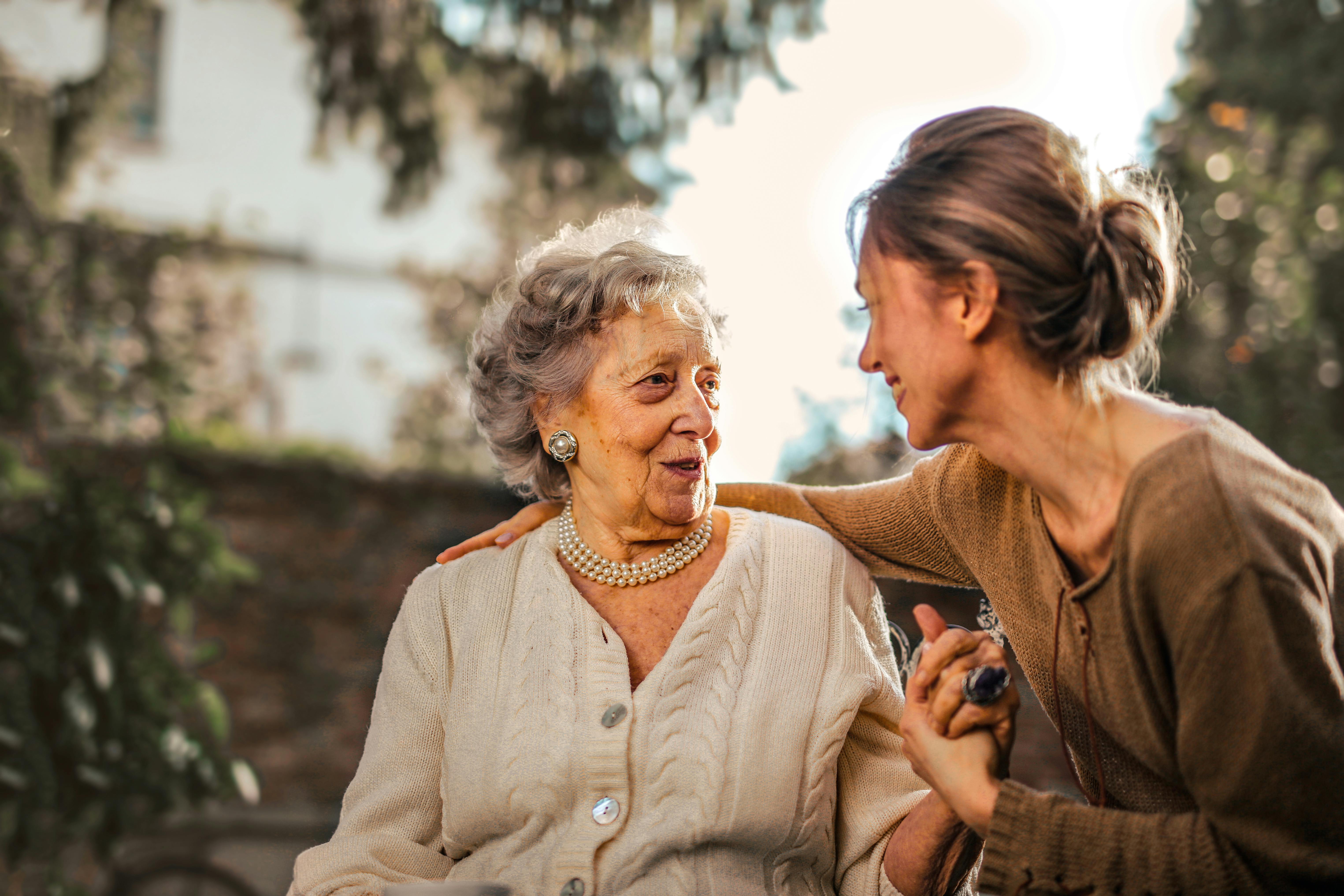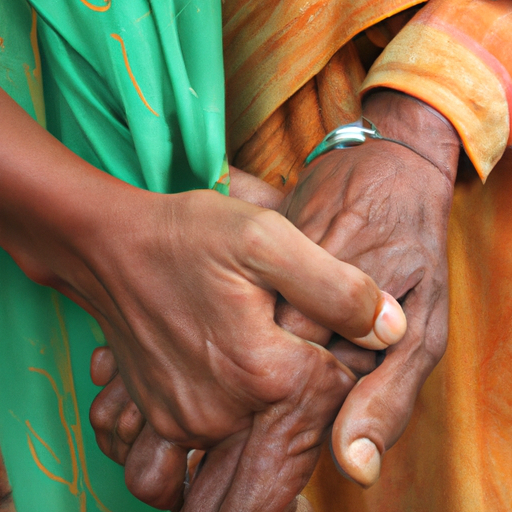In the bustling world of medical tourism, India stands out as a destination that offers not only top-notch healthcare but also a deep appreciation for cultural vibrancy. Amidst this thriving industry, there is a crucial aspect that deserves attention and admiration – Elderly care. India’s compassionate services for seniors are redefining the notion of caregiving, providing a safe and nurturing environment where the elderly can receive the support they need while immersing themselves in the richness of Indian culture. With a focus on holistic well-being and personalized care, India has become a beacon of hope for seniors seeking vibrant healthcare and a fulfilling lifestyle.

1. Elderly care services in India
When it comes to elderly care in India, there are several options available for ensuring the well-being and comfort of our senior citizens. These options can be broadly categorized into in-home care, assisted living facilities, nursing homes, and senior day care centers. Each of these options serves a different purpose and caters to the varied needs of the elderly population.
1.1 In-home care
In-home care refers to the provision of care services to seniors within the comfort of their own homes. Trained caregivers visit the elderly person’s residence and assist them with daily activities such as personal hygiene, mobility, medication management, and meal preparation. In-home care allows seniors to maintain their independence while receiving the necessary support to live a comfortable life.
1.2 Assisted living facilities
Assisted living facilities, also known as retirement communities, are residential communities specifically designed to meet the needs of elderly individuals who require assistance with daily activities but do not require round-the-clock medical care. These facilities provide seniors with private apartments or rooms, along with amenities such as communal dining areas, recreational activities, housekeeping, and transportation services.
1.3 Nursing homes
Nursing homes, also referred to as skilled nursing facilities, provide 24/7 medical care and supervision to seniors who have more complex healthcare needs. These facilities have a team of healthcare professionals, including nurses and doctors, who ensure that the residents receive the necessary medical attention and assistance. Nursing homes are specifically suitable for seniors with chronic illnesses or disabilities that require constant monitoring and medical intervention.
1.4 Senior day care centers
Senior day care centers offer a safe and engaging environment for elderly individuals during the day, while their primary caregivers are at work or otherwise occupied. These centers provide a range of services and activities, including social interaction, cognitive stimulation, physical exercises, and nutritious meals. Senior day care centers are particularly beneficial for seniors who live alone and may require companionship and support during the day.
2. Importance of elderly care
The importance of elderly care cannot be emphasized enough, especially in a country like India. With an aging population, it is crucial to address the physical and mental health needs of seniors to ensure their overall well-being and quality of life.
2.1 Aging population in India
India is witnessing a significant increase in its elderly population. According to recent statistics, the number of people aged 60 and above is estimated to reach 300 million by the year 2050. This rapid aging of the population poses unique challenges and highlights the need for adequate and compassionate elderly care services.
2.2 Physical and mental health needs of seniors
The physical and mental health needs of seniors differ from those of younger individuals. As we age, our bodies experience changes that may cause physical limitations, chronic health conditions, and a decline in cognitive function. Elderly care services play a vital role in addressing these needs through regular health monitoring, medication management, rehabilitation programs, and specialized treatments. Additionally, providing emotional support and mental stimulation is crucial for maintaining the mental well-being of seniors.

3. Challenges in elderly care
Despite the importance of elderly care, there are several challenges that need to be addressed to ensure the well-being of seniors in India.
3.1 Lack of awareness
One of the major challenges in elderly care is the lack of awareness among individuals and families regarding the available care options and the importance of planning for the future. Many families are unprepared or unaware of the support and resources available to them, which often leads to delayed or inadequate care for their elderly loved ones.
3.2 Financial constraints
Another significant challenge is the financial burden associated with elderly care services. Quality care can be expensive, and many families struggle to afford the necessary support for their elderly family members. This financial constraint often forces families to compromise on the quality or extent of care, which can negatively impact the well-being of seniors.
3.3 Shortage of trained caregivers
Finding trained and compassionate caregivers is a challenge faced by many families seeking elderly care services. The demand for caregivers has increased with the growing elderly population, while the supply remains limited. This scarcity of skilled caregivers makes it difficult for families to find reliable and competent professionals to care for their elderly loved ones.
3.4 Social stigma
There is still a prevailing social stigma associated with elderly care in some parts of India. Many families feel hesitant to seek outside assistance or consider placing their elderly family members in care facilities due to concerns about societal judgment or perceived abandonment. This stigma can hinder the access to and acceptance of proper elderly care services.
4. Government initiatives for elderly care
Recognizing the importance of elderly care, the Indian government has implemented various initiatives and programs to support the well-being of senior citizens.
4.1 National Program for Health Care of the Elderly
The National Program for Health Care of the Elderly (NPHCE) was launched by the Ministry of Health and Family Welfare in 2010. The primary objective of this program is to provide accessible, affordable, and comprehensive healthcare services to the elderly population. It focuses on strengthening geriatric services in public health institutions, providing specialized geriatric care, and promoting healthy aging practices.
4.2 Integrated Program for Older Persons
The Integrated Program for Older Persons (IPOP) is another government initiative that aims to improve the quality of life of senior citizens by providing financial assistance and support for their needs. This program offers various welfare measures, including financial grants, healthcare services, pension schemes, and support for recreational activities.
4.3 Maintenance and Welfare of Parents and Senior Citizens Act
The Maintenance and Welfare of Parents and Senior Citizens Act, commonly known as the Senior Citizens Act, was enacted in 2007 to protect the rights and interests of senior citizens in India. This law ensures the provision of maintenance, healthcare, and protection for the elderly, and also facilitates the establishment of old age homes and other care facilities. It provides a legal framework for addressing issues related to the care and welfare of senior citizens.

5. Technology advancements in elderly care
Technology has significantly impacted the field of elderly care, revolutionizing the way services are provided and enhancing the quality of life for seniors.
5.1 Remote health monitoring systems
Remote health monitoring systems enable caregivers and healthcare professionals to monitor the health parameters of seniors from a remote location. This technology allows for the tracking of vital signs, medication adherence, and overall well-being of elderly individuals. It can provide timely alerts and interventions in case of emergencies, ensuring prompt care and intervention.
5.2 Assistive devices for seniors
Assistive devices are technological tools designed to assist seniors in their daily activities and improve their independence. These devices include mobility aids, hearing aids, vision aids, and home automation systems. Assistive devices help seniors overcome physical limitations and promote a sense of empowerment and autonomy.
5.3 Telemedicine services for seniors
Telemedicine services have gained immense popularity in recent years, especially in the context of elderly care. Telemedicine allows seniors to access healthcare services remotely, eliminating the need for physical visits to healthcare facilities. Through video consultations or virtual appointments, seniors can receive medical advice, prescriptions, and ongoing healthcare support, thereby minimizing the barriers of transportation and mobility.
6. Holistic approach to elderly care
Elderly care should be approached holistically, considering the physical, emotional, social, and spiritual needs of seniors.
6.1 Physical well-being
Physical well-being is a fundamental aspect of elderly care. This includes regular health check-ups, ensuring proper nutrition, managing chronic illnesses, promoting mobility and exercise, and providing rehabilitative therapies. By focusing on physical well-being, seniors can maintain their overall health and independence for a longer duration.
6.2 Emotional support
Elderly individuals often face emotional challenges, including loneliness, grief, and anxiety. Providing emotional support through companionship, counseling services, and social engagement activities is essential for their mental well-being. Creating a nurturing and supportive environment can significantly improve the emotional health and quality of life for seniors.
6.3 Social engagement
Social engagement plays a vital role in combating loneliness and promoting mental stimulation among seniors. Organizing social activities, group outings, and community events can foster social connections and reduce feelings of isolation. It is important to encourage seniors to actively participate in social interactions and engage with their peers for a fulfilling and enjoyable life.
6.4 Spiritual care
Spiritual care recognizes the significance of one’s spiritual beliefs and values in elderly care. This may involve providing access to religious services, supporting spiritual practices and rituals, and facilitating discussions on faith and meaning. Considering the spiritual dimension of elderly care can contribute to a sense of purpose, inner peace, and overall well-being for seniors.
7. Quality of care in elderly facilities
Ensuring the quality of care in elderly facilities is paramount for the well-being and safety of seniors.
7.1 Trained and compassionate staff
Elderly facilities should employ trained caregivers who possess the necessary skills and expertise to handle the unique needs of seniors. Staff members should undergo regular training and education to stay updated with best practices and advancements in elderly care. Compassion, empathy, and respect are key attributes that caregivers should possess to foster a nurturing and supportive environment.
7.2 Personalized care plans
Each senior has unique needs and preferences, and it is crucial for elderly facilities to develop individualized care plans for each resident. These care plans should take into consideration the medical history, personal preferences, and specific requirements of the senior. Regular assessments and reviews of care plans should be conducted to ensure that they remain relevant and effective.
7.3 Safety and security measures
Providing a safe and secure environment is of utmost importance in elderly facilities. Adequate safety measures, including emergency response systems, proper lighting, accessible layouts, and secure premises, should be in place to prevent accidents and ensure the well-being of residents. Regular maintenance and inspections of facilities should be carried out to identify and address any potential hazards.
7.4 Recreational activities and therapy programs
Engaging seniors in recreational activities and therapy programs is crucial for their mental and physical stimulation. Elderly facilities should offer a variety of activities, such as arts and crafts, music therapy, gardening, and exercise classes, to enhance the quality of life for residents. These programs should be tailored to the abilities and interests of seniors, promoting a sense of joy, fulfillment, and purpose.
8. Cultural aspects of elderly care
Cultural values and practices play a significant role in shaping elderly care in India.
8.1 Respect for elders
Respect for elders is deeply ingrained in Indian culture, and it forms the foundation of elderly care. Treating seniors with utmost respect, dignity, and reverence is seen as a moral obligation. This cultural value translates into the provision of care services that uphold the dignity and autonomy of seniors, fostering an environment of honor and respect.
8.2 Multigenerational living
Multigenerational living is a common practice in Indian families, where multiple generations live together under one roof. This arrangement provides an inherent support system for seniors, as they are surrounded by their children and grandchildren, who can offer care and companionship. Multigenerational living promotes intergenerational bonds and ensures that seniors are included in the fabric of family life.
8.3 Traditional practices in senior care
India has a rich history of traditional practices that cater to the specific needs of seniors. Ayurveda, the traditional system of medicine, offers holistic treatments and therapies that focus on maintaining overall well-being. Traditional practices such as yoga and meditation are known to promote physical and mental health in seniors. These ancient practices continue to play a significant role in the care of elderly individuals in India.
9. Financial planning for elderly care
Planning for the financial aspects of elderly care is crucial to ensure that seniors receive the necessary support and services.
9.1 Retirement savings and investments
Seniors should prioritize saving for retirement and investing in long-term financial instruments to secure their financial stability. This includes building a retirement fund, considering pension plans, and exploring investment options that can provide a steady source of income during their retirement years.
9.2 Insurance policies
Purchasing appropriate insurance policies, such as health insurance and long-term care insurance, can safeguard seniors against unforeseen medical expenses and care costs. These policies provide coverage for hospitalization, medication, and specialized care, easing the financial burden on seniors and their families.
9.3 Government schemes and benefits
Seniors should explore the various government schemes and benefits available to them, such as pension schemes, senior citizen discounts, and tax exemptions. These schemes can provide financial relief and support to seniors, enhancing their financial security and access to necessary care services.
10. Advocacy and support groups for seniors
Advocacy and support groups play a crucial role in promoting the rights and well-being of senior citizens in India.
10.1 Non-profit organizations
Non-profit organizations dedicated to elderly care advocate for the rights and needs of seniors, raise awareness, and provide essential support services. These organizations offer counseling, legal assistance, financial aid, and recreational activities for seniors. They also promote community engagement and empowerment for the elderly population.
10.2 Senior citizen forums
Senior citizen forums provide a platform for seniors to come together, share experiences, and address common issues. These forums facilitate social interaction, promote educational programs, and establish networks of support among seniors. They enable seniors to actively participate in decision-making processes and advocate for their rights and needs.
10.3 Legal aid services
Legal aid services cater specifically to the legal needs of senior citizens, ensuring their protection and rights. These services provide guidance on various legal matters, including property rights, inheritance laws, healthcare decision-making, and protection against abuse or exploitation. Legal aid services play a crucial role in addressing the legal challenges faced by seniors and providing them with the necessary support.
In conclusion, elderly care in India encompasses a wide range of services and initiatives aimed at ensuring the well-being and comfort of senior citizens. The growing aging population and the specific physical and mental health needs of seniors necessitate a comprehensive and holistic approach to elderly care. While challenges exist, both the government and various stakeholders are actively working towards addressing them and providing compassionate services to the elderly population. By promoting awareness, investing in training and technology advancements, and respecting cultural values, we can create a society that values and supports its elderly citizens.
